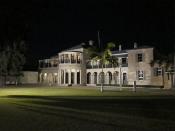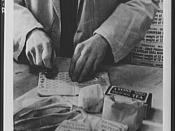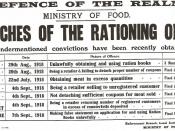CensorshipDuring the 2nd world war the Federal Government introduced wartime controls in Australia. The government was able to take these controls through the national security act of 1939. One of these controls was censorship. Censorship is restrictions on communications which can involve hiding, altering or removing information.
The Federal government introduced censorship of newspapers, radio, overseas telegraphs, telephones and mail during World War 2. The government also restricted the keeping of diaries and censored personal letters from soldiers, so they did not to contain army locations, numbers of troops or anything that would by useful to the enemy if intercepted. The government set up the department of information which was given the power over censorship and information given to the public. From 1940-1945 journalists of Australian newspapers became frustrated with the heavy restrictions on what they were able to print and they felt they were being too heavily censored and controlled by the government.
Censorship was introduced by the federal government for several reasons. One reason was to stop the enemy receiving any valuable information they could be contained in diaries, letters, telegraphs or telephone calls. Censorship was a precaution to prevent the enemy gaining any knowledge about Australia's war plans. Censorship was also introduced so they government was able to tell the public exactly what they wanted them to know. Censorship stopped the public knowing mistakes made by the government during the war. The government also wanted to present the positive side of the war and disregard the negative side to avoid criticism from the public and provoking fear in Australians. By only providing the positive side and success of the war the government felt that they were maintaining high hopes for Australians at home. The federal government wanted to keep the Australian spirit high and this was not...


